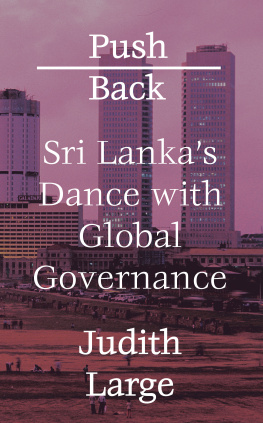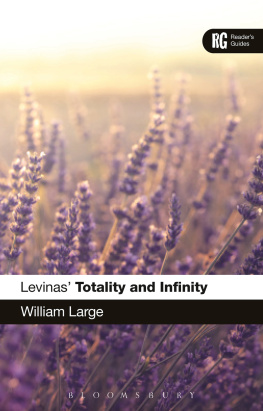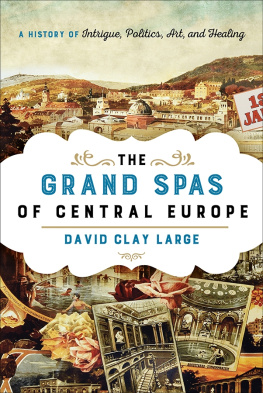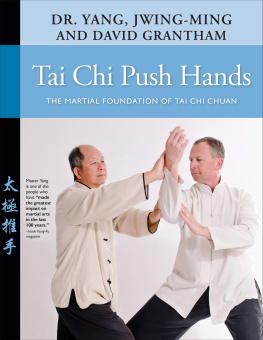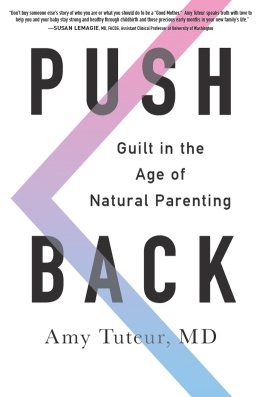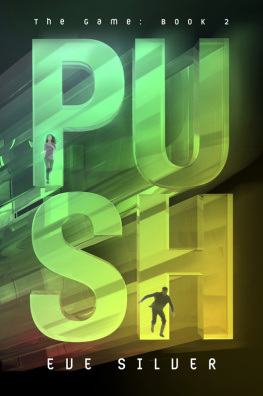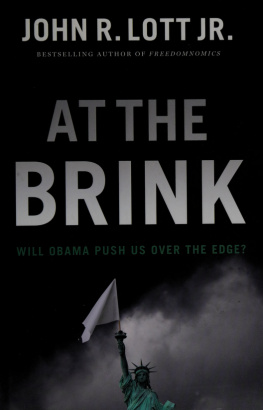Large - Push Back
Here you can read online Large - Push Back full text of the book (entire story) in english for free. Download pdf and epub, get meaning, cover and reviews about this ebook. year: 2016, publisher: National Book Network International, genre: Politics. Description of the work, (preface) as well as reviews are available. Best literature library LitArk.com created for fans of good reading and offers a wide selection of genres:
Romance novel
Science fiction
Adventure
Detective
Science
History
Home and family
Prose
Art
Politics
Computer
Non-fiction
Religion
Business
Children
Humor
Choose a favorite category and find really read worthwhile books. Enjoy immersion in the world of imagination, feel the emotions of the characters or learn something new for yourself, make an fascinating discovery.
Push Back: summary, description and annotation
We offer to read an annotation, description, summary or preface (depends on what the author of the book "Push Back" wrote himself). If you haven't found the necessary information about the book — write in the comments, we will try to find it.
Large: author's other books
Who wrote Push Back? Find out the surname, the name of the author of the book and a list of all author's works by series.
Push Back — read online for free the complete book (whole text) full work
Below is the text of the book, divided by pages. System saving the place of the last page read, allows you to conveniently read the book "Push Back" online for free, without having to search again every time where you left off. Put a bookmark, and you can go to the page where you finished reading at any time.
Font size:
Interval:
Bookmark:

More Praise for Push Back
This important new volume is essential reading for those wishing to understand the decades-long conflict in Sri Lanka, the quest for accountability, and the challenges of building peace in the wake of conflict.
Chandra Lekha Sriram, University of East London
A brilliant exposition of the end game in the Sri Lankan civil war. This book is essential background reading for anyone interested in how civil wars end and the role of different actors in these processes.
Kevin Clements, University of Otago
About the author
Judith Large is a senior research fellow at the Conflict Analysis Research Centre, University of Kent. She has over twenty-five years experience in international conflict analysis, mediation and peacebuilding, ranging from work with civic groups and national governments to UN agencies, including the UNHCR, UNDP, BCPR and WHO.
PUSH BACK
Sri Lankas Dance with Global Governance
JUDITH LARGE

Push Back: Sri Lankas Dance with Global Governance was first published in 2016 by Zed Books Ltd, The Foundry, Oval Way, London SE RR, UK.
www.zedbooks.net
Copyright Judith Large 2016 .
The right of Judith Large to be identified as the author of this work has been asserted by her in accordance with the Copyright, Designs and Patents Act 1988 .
Typeset in Sabon by Swales & Willis Ltd, Exeter, Devon
Index by Ed Emery
Cover design by Kika Sroka-Miller
Cover photo Chris Stowers/Panos
All rights reserved. No part of this publication may be reproduced, stored in a retrieval system or transmitted in any form or by any means, electronic, mechanical, photocopying or otherwise, without the prior permission of Zed Books Ltd.
A catalogue record for this book is available from the British Library.
ISBN -- 78360 -- hb
ISBN -- 78360 -- pb
ISBN -- 78360 -- pdf
ISBN -- 78360 -- epub
ISBN -- 78360 -- mobi
CONTENTS
This book was inspired by the work and engagement of particular individuals, both in and outside Sri Lanka, notably Kishali Pinto Jayawardena, Chandra Jayaratne, Paikiasothy Saravanamuttu, Asanga Welikala, Faaiz Ameer, Sreen Saroor, Ruki Fernando, Bhavani Fonseka, Suthaharan Nadarajah, Madurika Rasaratnam and David Whaley. Particular thanks go to Malcolm Rodgers for his thoughtful insights and useful, structured conversations along the way; to Swarna Rajagopalan for her patient explaining of the intricacies of South Asian conceptions of sovereignty and nationhood; to Visaka Dharmadasa and Fred Carver for their individual sharing and permissions to use the diagrams in Chapter ; to Sherine Xavier for special conversations; and to Miriam Young for her quiet encouragement. Alan Keenan of the International Crisis Group writes acute informative updates and briefings and has been approachable for deliberations on ways of understanding national and international developments, as have Peter Bowling, Richard Reoch and Yolanda Foster, who shared their country experience. The Centre for Policy Alternatives (CPA) and International Centre for Ethnic Studies (ICES) in Colombo both produce excellent study resources and have been welcoming in Colombo, even at short notice. Appreciation is also extended to the Social Architects, and to the many interviewees and contacts in Kandy, Mannar, Jaffna, Kilinochchi, Trincomalee, Batticaloa and Sampur who gave of their time and trust. Feargal Cochrane at the Conflict Analysis Research Centre (CARC), University of Kent, offered a collegial base in the UK, and warm thanks go to Sakuntala Kadirgamar for her long-term friendship and to Saro Kadirgamar for her generosity and special hospitality. Gillian Evans provided technical support, and continual moral support came from Martin Large and the family. Kenneth Bush, who was generous and passionate in his reflections and memories of extensive experience in Sri Lanka, died suddenly before the draft manuscript was completed. His loss will touch many.
Useful in-depth learning, critical considerations and reflections were prompted by participation in an ICES conference on Ethical Futures : Dialogues on State, Society and Ethical Existence, held in Colombo from May to June 2013 . Early observations also shaping this study came from working visits to Sri Lanka under the auspices of the Non-official Group of Friends of Sri Lanka led by Ambassador Richard Armitage, whose connection to the island dates back to an official mission in 1983 . Particularly noteworthy for the inquiry was a sobering visit to Jaffna in 2010 with Dr Louisa Chan-Boegli and the former President of Mauritius, Cassam Uteem, and subsequent wider travel through the North and East with Ms Kara Bue. My thanks go to Zed Books and to Judith Forshaw. Any oversights or mistakes within these pages are entirely my own.
Much contested, and evident through institutional architecture with organising principles geared towards specific issue areas, global governance is not a fixed point or finite structural configuration but a system of relationships and transactions, beliefs, sanctions and incentives for behaviours. This book does not claim new theoretical breakthroughs. Rather, it seeks to tell the story of a particular ten-year period in the life of the Sri Lankan polity, its people and related interest groups. At its heart is a crisis of the state, and the question of how a ruling party sought to both court and refute international opinion. As such, it probes necessarily into the deep structures and contextual conditions that provided a basis for chosen positioning, messaging and actions from 2005 to 2015 by the Rajapaksa government.
The inquiry has been driven by the pressing challenge to understand both historical needs for and blockages to social justice in this particular South Asian context. More than that, its analytical lens suggests that we are all interconnected in terms of our varying respective networks, states, governments and shared transnational social movements; our actions or non-action with respect to norms of global governance. The Sri Lankan conflict is a macrocosm for its inhabitants and all those affected, including the diaspora. It is also a case study that provides a mirror on wider trends and dynamics, offering learning on war-to-peace transitions, social mobilisation, power and leadership, human rights advocacy, securitisation, protection, inclusion and accountability. The thought attributed to Gramsci, Pessimism of the intellect, optimism of the will, runs through this examination of one decade in an ongoing story. This book, a modest outsider view, is dedicated to the many talented and caring people actively working for a better future in Sri Lanka.
Judith Large, September 2016
ACF | Action Contre la Faim |
ADB | Asian Development Bank |
ASEAN | Association of Southeast Asian Nations |
BBS | Bodu Bala Sena (Buddhist Power Force) |
BJP | Bharatiya Janata Party |
BRICS | Brazil, Russia, India, China, and South Africa |
CHOGM | Commonwealth Heads of Government Meeting |
CID | Criminal Investigation Department |
CPA | Centre for Policy Alternatives |
CSO | civil society organisation |
EPRLF |
Font size:
Interval:
Bookmark:
Similar books «Push Back»
Look at similar books to Push Back. We have selected literature similar in name and meaning in the hope of providing readers with more options to find new, interesting, not yet read works.
Discussion, reviews of the book Push Back and just readers' own opinions. Leave your comments, write what you think about the work, its meaning or the main characters. Specify what exactly you liked and what you didn't like, and why you think so.

